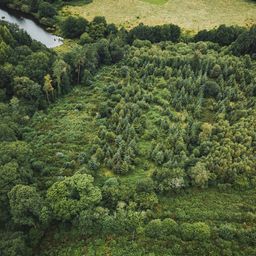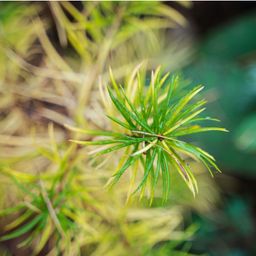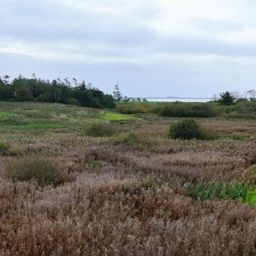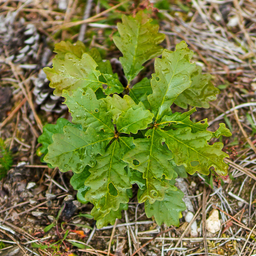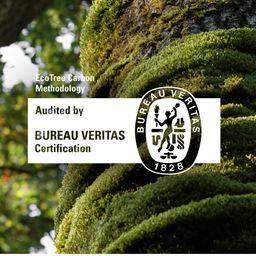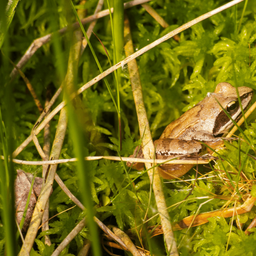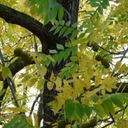
Black walnut: Uses and characteristics
The Black walnut, native to the eastern United States, is a majestic tree prized for its dark, precious wood, large compound leaves and nuts protected by a hard shell.
Black Walnut
Black walnut (Juglans nigra), a member of the Juglandaceae family, is native to eastern North America. This majestic tree, which can reach heights of 30 to 40 metres, is treasured for its valuable dark, grained wood. It is recognised for its robust trunk and deeply fissured bark, as well as its large, compound leaves and hard-shelled nuts.
Economically, the black walnut plays an essential role as a source of quality timber, while ecologically, it is significant as a sustainable species in forest management projects.
Why does EcoTree plant Black Walnut?
Black walnut is generally hardy and less susceptible to disease than some other tree species. It has a good capacity to resist pests and environmental stresses, which reduces the risk of losses in forest plantations.
The Black walnut secretes a substance called juglone which inhibits the growth of certain competing plants in the vicinity. This allelopathic effect can limit invasion by undesirable species or weeds, reducing competition for resources such as water, light and nutrients. This favours the growth of the Black walnut trees themselves and can be an advantage in the management of forest ecosystems.
Finally, it produces high-quality wood. This wood is dense, resistant, durable and has a beautiful dark colour, making it a sought-after material, often used for top-of-the-range products.
Black Walnut - Overview
Black Walnut - Overview
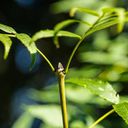
Black Walnut - Species requirements
The black walnut tree thrives best in full sunlight, requiring at least 6 to 8 hours of direct sunlight daily for optimal growth. Although the tree is resilient, young plants can be sensitive to strong winds, so planting in sheltered areas or using natural windbreaks is advisable.
Black walnut prefers deep, fertile, well-drained soil. It thrives particularly well in silty or silty clay soils rich in organic matter. Proper drainage is essential, as compacted or poorly drained soil can lead to root diseases and limit growth. The tree does not tolerate consistently wet or boggy conditions.
Young shoots of black walnut are sensitive to late spring frost, so it is essential to select planting sites where this is rare to avoid damaging new growth.
Black walnut's Wood
Black walnut wood is highly sought after in the furniture industry for creating high-end pieces. Its natural dark tones, ranging from deep chocolate brown to purple, and its rich, straight grain make it an ideal choice for crafting elegant, durable furniture.
The wood is also prized in lutherie, particularly for making guitars, violins, and other stringed instruments. Its dense grain and stability make it an excellent choice for instrument bodies and necks, offering both visual appeal and superb acoustics.
In some cases, black walnut wood is used in shipbuilding for select parts due to its strength and stability, though it is less commonly used than Oak or Teak for this purpose.
Black walnut's symbolism
In many cultures, the walnut tree, including black walnut, is often seen as a symbol of wisdom and knowledge. This symbolism is linked to the walnut itself: a rich core enclosed in a hard shell, symbolising the pursuit of knowledge, which may require effort to "crack the shell" and access its contents.
In certain ancient traditions, the walnut tree was also associated with justice and integrity. With its straight trunk and deep roots, the tree symbolises moral uprightness, sometimes believed to help clarify situations or maintain order.
Our selection of trees
Our goal is to enable anyone to do something that benefits nature and helps us to live in a more harmonious world. So why not become a tree owner in a European forest and help combat climate change?


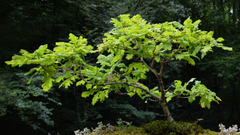

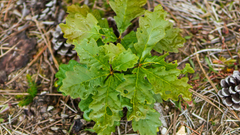

Please note that this is promotional communication. See our notice of information.
